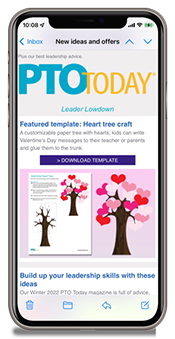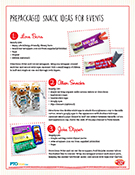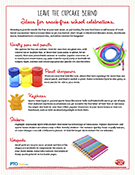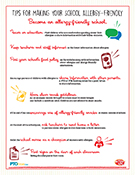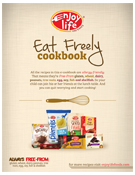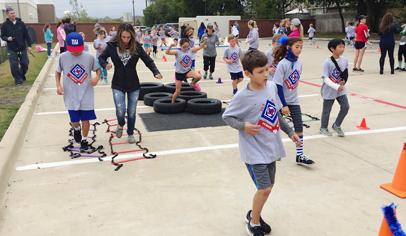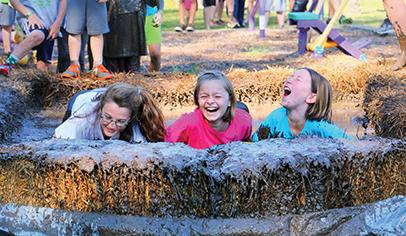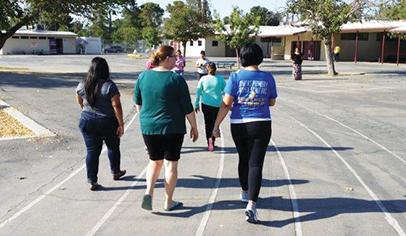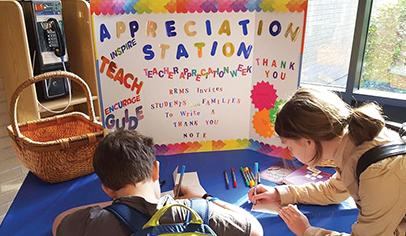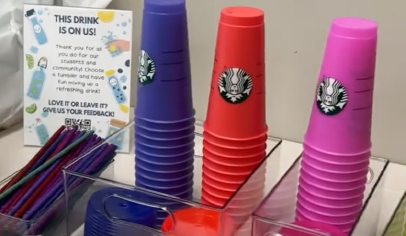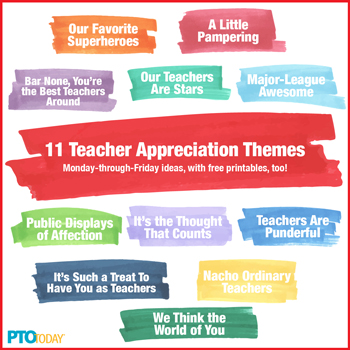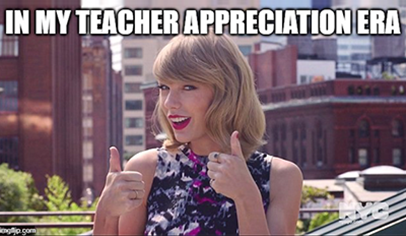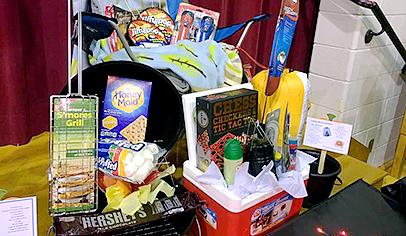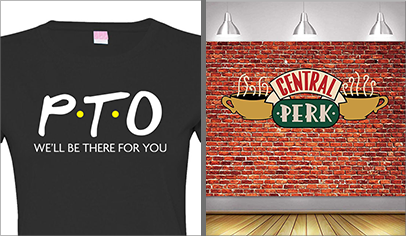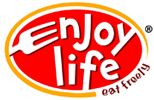 This article is brought to you by Enjoy Life, maker of allergy-friendly snacks.
This article is brought to you by Enjoy Life, maker of allergy-friendly snacks.
Learn more.
Food allergy issues can be challenging at school—in the lunchroom, for classroom parties, at events. In fact, any time food is served, it’s important to be very aware of allergy concerns.
We asked parent group leaders how their parent group and school deal with allergy issues. They shared many creative ideas and approaches. Here are some key takeaways. And find even more tools and tips for allergy-friendly schools in the downloadables at the bottom of the page.
To read all the responses, visit the PTO Today Facebook page. The discussion was sponsored by Enjoy Life Foods.
1. Communication is key. Students, staff, and parents must all be aware of the rules and procedures.

Tiffany S. At our school, each classroom keeps a list of each child’s allergies close at hand. The first step is to make sure your teachers remember to ask each parent at the beginning of the year about allergies, and throughout the year keep in contact with parents to make sure there are no health changes going on in your kids’ lives.
Carla S. We post a food policy on our website...and a flyer/email is sent prior to the school year and sometimes flyers during the year when there are special events and foods are brought in from our Approved Snack List.
Stephanie O. All classrooms have signs posted on the classroom door if there is a nut (or other food) allergy. Also, the teachers send written communication home prior to any class parties to remind us of the food allergy and even provide a list of approved nut-free snacks.
2. Nut-free tables have become standard in cafeterias, but not all schools do it that way.

Michelle P. [The] school cafeteria has one table that all peanut allergy kids sit at along with any other kiddos who have nothing peanut in their lunches; that way it’s a “safe” table.
Shelly M. Our school has the opposite, if you bring anything with nuts you have to sit at the nut table.
Heather T. In the cafeteria, students help each other by self-monitoring. For example, a student with allergies helps make sure they aren’t sitting by someone with an allergen in their lunch. Likewise, if a student brings a PBJ, they make sure not to sit near classmates with nut allergies.
Heather M. Our classroom aides also work in the cafeteria so they watch the students with food allergies, especially the younger ones, and move students away from each other when a potential issue comes up.
3. It helps to be inclusive whenever possible.

Kristin H. Many teachers in our school have adopted the “apples and pretzels” snack time to a) encourage healthy eating and b) promote an inclusive classroom environment for kids with food allergies/manage allergies. Surprisingly, the kids love the routine and so do parents when it’s their child’s turn to provide classroom snack because it’s easy, saves time and worry of not having to read labels. Plus, it creates a [peace] of mind for parents....Teachers do change things up a couple times/year with oranges and crackers, etc., but predominantly it’s apples and pretzels.
4. Food for classroom parties often must be packaged and labeled.

Kris S. All treats must be store-bought and approved by the nurse before [being] brought to the class. Every teacher is aware of his/her children’s allergies. Our schools are latex-free, can’t even have balloons. In PTO we work hard to follow those same guidelines when providing snacks...non-latex gloves, offer at least some nut-free items, and no homemade foods.
Lisa F. Instead of parents sending in food for parties, we collect $10 per child and this covers all parties for the year. Our homeroom parents will then purchase the food for the parties with careful consideration of the allergies in the class. Parents can also send in nonedible treats for their children’s birthday.
Erica D. If a parent insists on a snack to celebrate [a] birthday, it is bought through the school and must be safe for kids in the class. Holiday and Valentine party treats are limited to three options and two are allergy-safe, hand-delivered to classrooms by PTO.
5. Some school encourage nonfood alternatives.

Erica P. [I]f parents do want to send in treats for their student and classmates, the teachers encourage games or crafts.
Lisa S. At Halloween, we do trick or treat for the kids. Parents are encouraged to bring non-food items to hand out (glow sticks, fun teeth, etc.) so kids with allergies can fully participate.
6. It’s important to keep food allergies in mind when organizing events.

Kris S. [W]e changed our school carnival from being one that provided cokes/candy to one that provided an allergy-friendly lunch (name-brand Oreos, water, plain potato chips, and hot dogs). Anytime...PTO hosts an event, I discourage any foods known to be a hazard....I also check with the school nurse before events to be sure that I am aware of any students with serious allergies.
Alison G. I’m the mom of a kindergartner that has an anaphylactic allergy to peanuts. I use my PTA platform to make sure our events (like the jogathon) have peanut-free snacks to help spread food allergy awareness.
Heather M. The PTO asks that all bake sale items be labeled so that the students and aides can make choices that work for them.
7. It’s important to think comprehensively about allergies. Schools have different approaches, but they need to look at the issue from many different angles.

Trini A. We have peanut-free tables in the cafeteria, they are set up in a different area. Additionally the tables are wiped clean after each lunch session. To manage classroom parties, the nurse provides a list of all allergies in the classroom (names omitted) and prior to food being allowed in the classroom, the room parent must take pictures of all labels and receive approval from the nurse. It’s extra work but worth it to ensure the safety of children and to make sure everyone is included! Our school nurse is also really great about reaching out to parents of children with food allergies to ensure a product is safe and to ensure there are not any concerns. All of our PTA events do not allow nuts or products which are made in a facility that processes nuts. We always have the labels for parents to review and will provide multiple options. For example, if we offer ice cream, we’ll be sure to pick up a box or two of Popsicles as well to address any dairy allergies. Most if not all of the parents are willing to educate us on what is safe and will often provide specific recommendations. With a little planning and lots of communication, [our] PTA makes it work.
More Tools and Tips for Allergy-Friendly Schools
Love Enjoy Life products? Tell us why!
